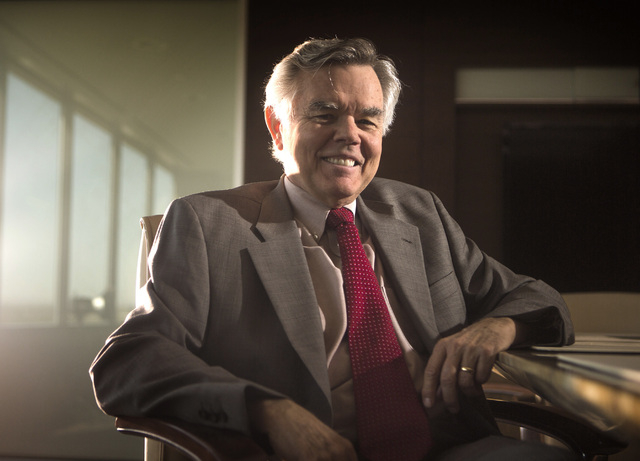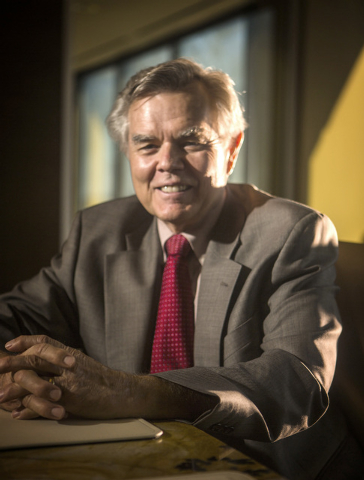Executive Snapshot: lobbyist Terry Care
When Terry Care was in high school in Kansas, an aptitude test indicated he should become either a journalist or a lawyer. In fact, he has managed to have successful careers in both broadcasting and law, and today is a partner in the McDonald Carano Wilson law firm, where he heads the Government Affairs Group.
After serving in the Army in Vietnam, he worked as a radio and television journalist, landing in Las Vegas in 1979 and eventually becoming news director for the local ABC affiliate. He then decided to switch careers and went to law school at the age of 40. Care was elected to the Nevada Senate in 1998 and served three terms, but was prevented from running again by the state’s term-limit law. He was been with McDonald Carano Wilson for eight years.
Why did you move from broadcast journalism to law?
Broadcasters have been referred to as “electronic gypsies” and there were no 401(k)s. Since my wife was pregnant with our daughter, it was time to make long-term plans. Remembering my high school aptitude test, I decided that it might be time to go to law school.
Why did you decide to run for public office?
It’s not something I decided on impetuously; it was more of an evolution. I had an investment in the community and what was going around me, and I thought I could make a difference. So my wife and I decided I should run for the state Senate. Having a child in public school was also a big motivator.
If you hadn’t been term-limited, would you have stayed in office longer?
No. Twelve years is a long time, and I still had my law practice. Serving in the Legislature is especially hard for an attorney because you still have clients to serve. It’s a rough haul — like having two full-time jobs.
Are you a lobbyist or a government affairs attorney?
I’m a lobbyist who’s also a government affairs attorney. Being an attorney is an advantage because legislation can be convoluted. It’s only natural that an attorney would be asked to testify about legal aspects of legislation.
What’s the most challenging part of bring a lobbyist?
As a litigator, if I have my facts right and my law right, I have a good chance of predicting the outcome, but being a lobbyist is much different. In politics, everybody knows what the arguments are, but political undercurrents might result in an outcome you don’t want. Elected officials have to make the tough decisions. You just have to respect the positions they hold and go on to the next battle.
Do you do any community or pro-bono work?
Since 1999 I have been a commissioner for the Uniform Law Commission, a national group that helps research and draft laws to keep business regulations consistent from state to state. We encourage states to enact the laws so rules stay the same when you cross state borders.

































